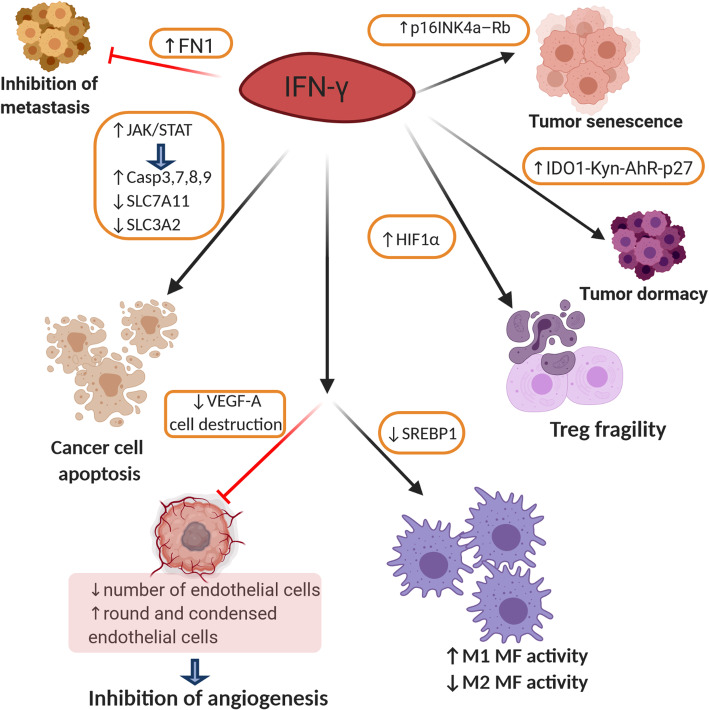Fig. 3.
Mechanisms of interferon-γ mediated cancer regression. The IFN-γ stimulates activation of JAK/STAT signaling in the TME what further drives increased caspase activity and downregulation of SLC7A11 and SLC3A2. Consequently, cancer cells undergone apoptosis directly or through induced lipid peroxidation and ferroptosis. IFN-γ induces fragility of Tregs and inhibits the formation of tumor blood vessels by downregulating VEGF-A. Additionally, tumor angiogenesis is inhibited by IFN-γ-induced endothelial cells destruction. Through stimulation of M1 macrophage polarization and inhibition of their M2 phenotype, it contributes to effective antitumor immune response. The IFN-γ can stimulate p16INK4a-Rb pathway and thus, tumor senescence, while IFN-γ-mediated activation of IDO1-Kyn-AhR-p27 pathway shifts tumors to a dormant state. Moreover, IFN-γ increases FN1 expression that limits cancer metastasis. SLC7A11-solute carrier family 7 member 11; SLC3A2-solute carrier family 3 member 2); IDO1-indoleamine 2,3-dioxygenase 1; Kyn-kynurenine; AhR-aryl hydrocarbon receptor; p27-cyclin-dependent kinase inhibitor 1B; p16INK4a-p16(INK4a) cyclin-dependent kinase; Rb-retinoblastoma; FN1-fibronectin-1

